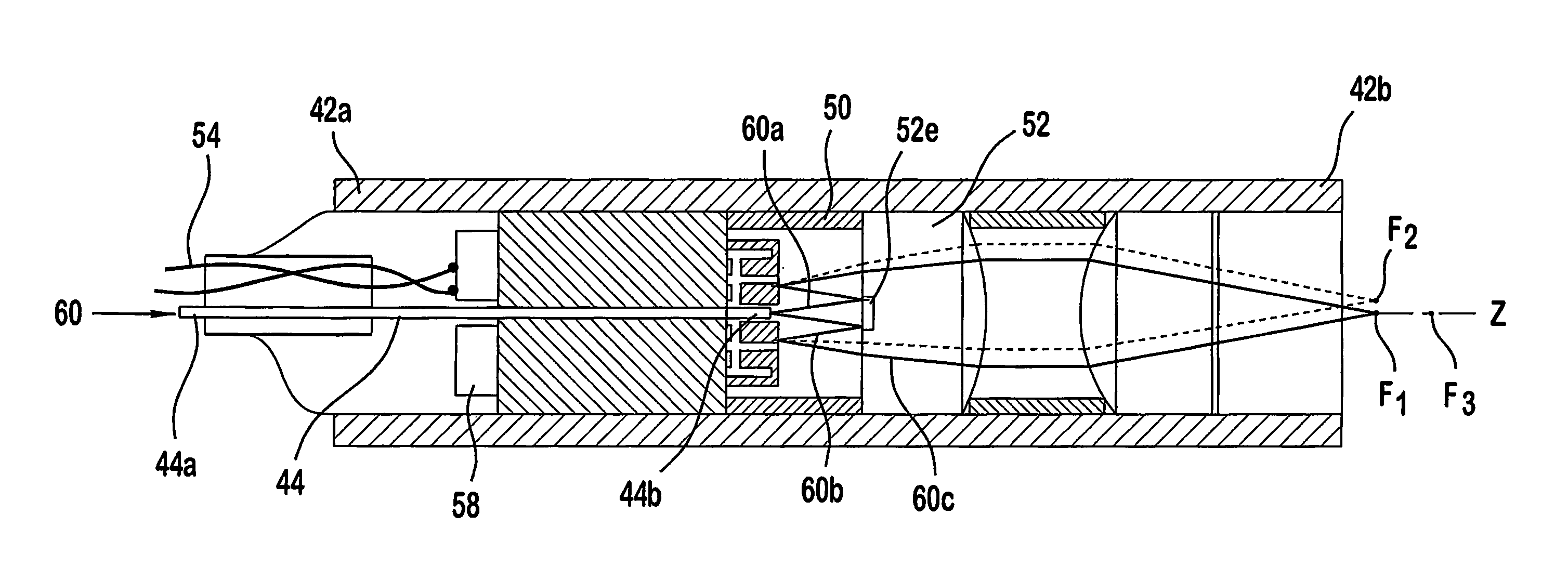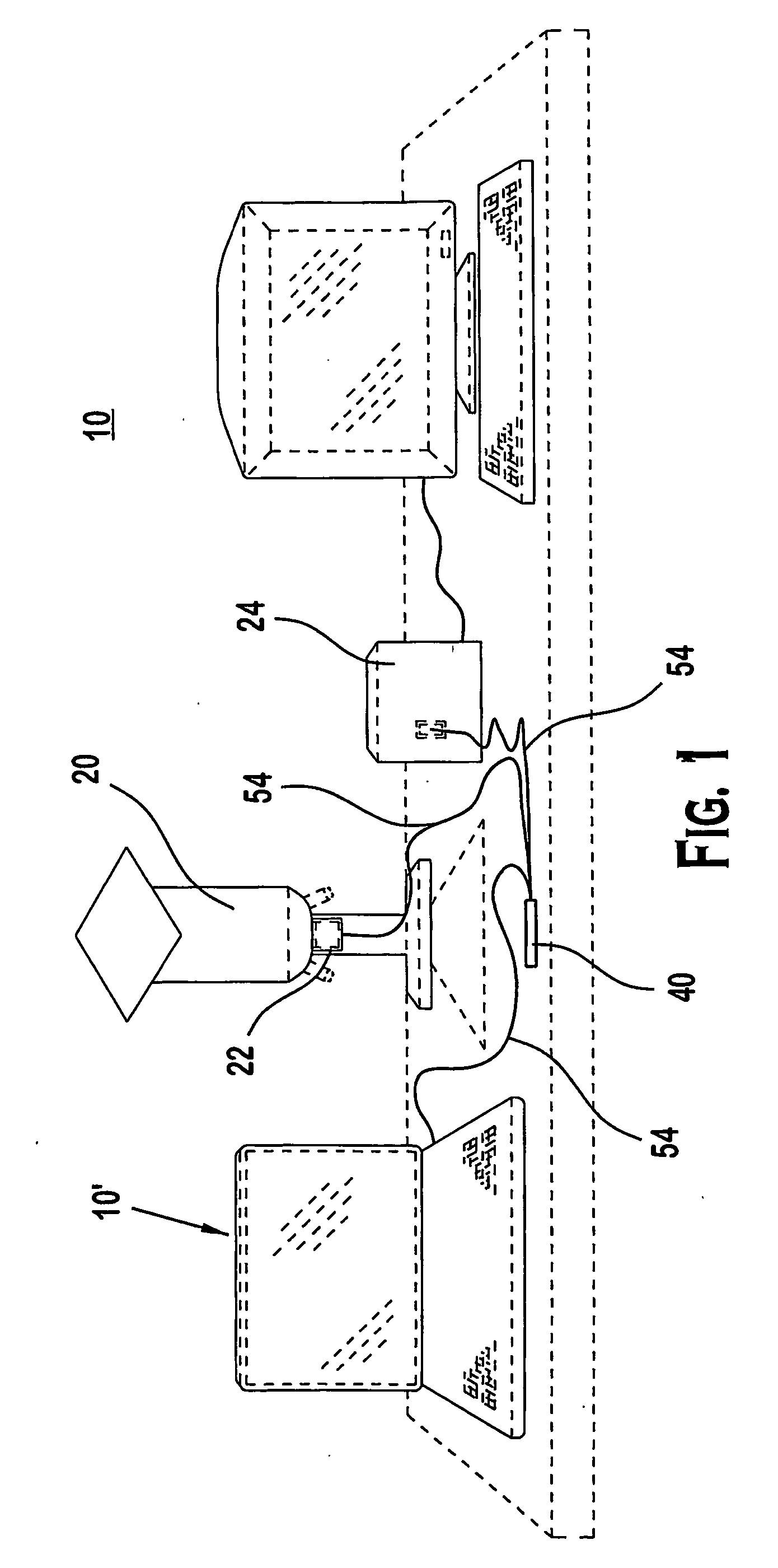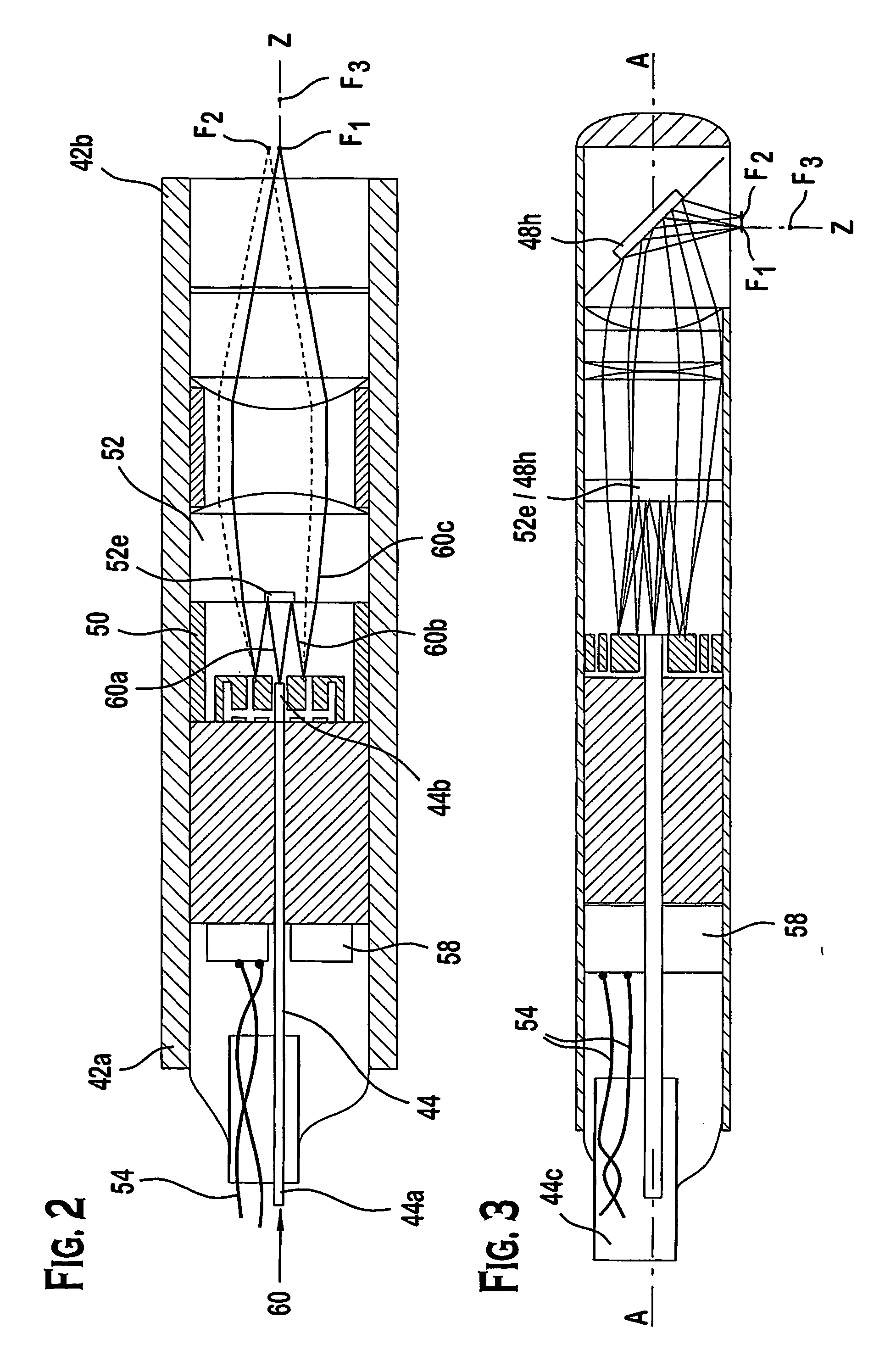Miniature confocal optical device, system, and method
a confocal optical and miniature technology, applied in the field of optical scanning devices, can solve the problems of inability to provide an image of optical sections of thick specimens, inability to provide a microscope, and inability to focus on out-of-focus portions of images
- Summary
- Abstract
- Description
- Claims
- Application Information
AI Technical Summary
Benefits of technology
Problems solved by technology
Method used
Image
Examples
Embodiment Construction
[0037] Unless defined otherwise, all technical and scientific terms used herein have the same meaning as commonly understood by one of ordinary skill in the art in related technical fields.
[0038]FIGS. 1-8 illustrate preferred embodiments. In particular, FIG. 1 illustrates one example of a confocal optical system 10. The system 10 can include a photodetection unit 20 and graphical display unit 30 coupled to a confocal microprobe 40. The microprobe 40 can be coupled to the photodetection unit 20 via an optical interface 22, such as, for example, an optical fiber type beam splitter, which is further coupled to the display 30. The microprobe 40 can be controlled by an electrical interface 24. Although the system 10 is shown as a desktop unit, the components of the system 10 can be configured into portable or handheld systems 10′.
[0039] Referring to FIG. 1, the microprobe 40 can be configured in at least two different arrangements, shown exemplarily here as FIGS. 2 and 3. Although the ...
PUM
 Login to View More
Login to View More Abstract
Description
Claims
Application Information
 Login to View More
Login to View More - R&D
- Intellectual Property
- Life Sciences
- Materials
- Tech Scout
- Unparalleled Data Quality
- Higher Quality Content
- 60% Fewer Hallucinations
Browse by: Latest US Patents, China's latest patents, Technical Efficacy Thesaurus, Application Domain, Technology Topic, Popular Technical Reports.
© 2025 PatSnap. All rights reserved.Legal|Privacy policy|Modern Slavery Act Transparency Statement|Sitemap|About US| Contact US: help@patsnap.com



